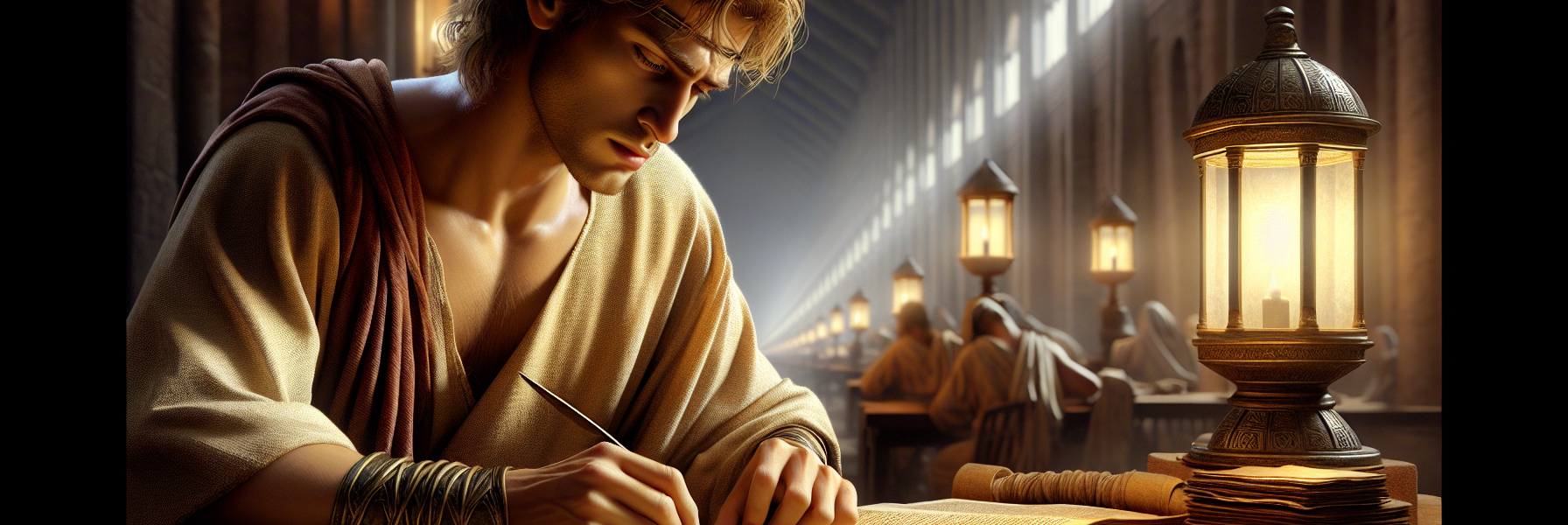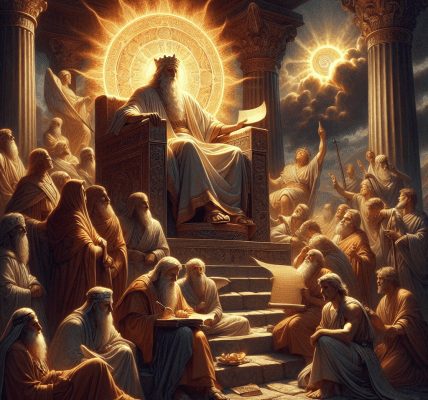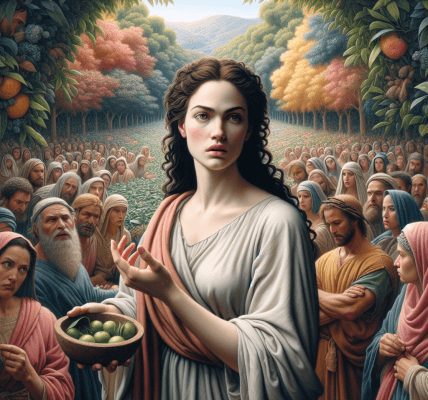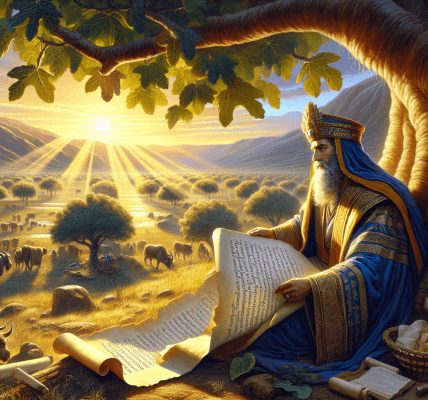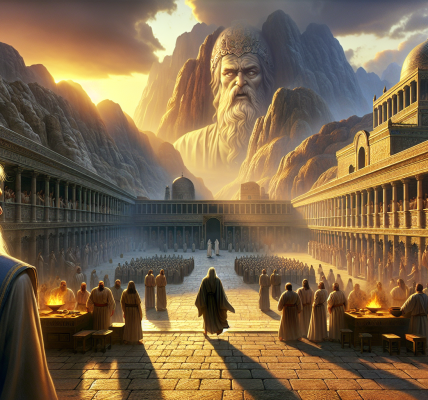**The Lamp and the Light: A Story of Devotion from Psalm 119**
In the ancient city of Jerusalem, during the reign of King Hezekiah, there lived a young scribe named Eliab. He was a quiet and thoughtful man, devoted to the study of the Law of the Lord. His days were spent in the courts of the Temple, where he copied the sacred scriptures with painstaking care, and his nights were filled with meditation on the words he had transcribed.
Eliab’s love for the Law was not born out of mere duty but from a deep hunger for righteousness. He often whispered the words of Psalm 119 to himself as he worked: *”Blessed are those whose way is blameless, who walk in the Law of the Lord.”* To him, the commandments were not chains but a path of freedom, guiding his steps like a lantern in the darkest night.
One evening, as the sun dipped behind the hills of Judah, Eliab sat in his small chamber, a flickering oil lamp casting long shadows on the parchment before him. He was copying the words of Moses, tracing each letter with reverence. Suddenly, a knock disturbed the stillness. At the door stood his friend, Micah, a merchant whose face was lined with worry.
“Eliab,” Micah said urgently, “I need your counsel. The traders from Damascus have cheated me, and now I face ruin. The elders say I must repay a debt I did not incur. What should I do?”
Eliab set down his quill and motioned for Micah to sit. He opened a scroll and read aloud: *”I have stored up your word in my heart, that I might not sin against you.”* Then he spoke gently, “The Law commands justice, my friend. You must go before the judges and speak the truth. Do not fear, for the Lord upholds those who keep His statutes.”
Micah hesitated. “But what if they do not listen?”
Eliab’s eyes gleamed with quiet confidence. *”Your word is a lamp to my feet and a light to my path.* Trust in the Lord’s wisdom, not in the schemes of men.”
The next day, Micah stood before the elders and declared his innocence, appealing to the Law of Moses. To his astonishment, one of the judges, a man who had studied under Eliab, recognized the truth and ruled in his favor. Micah returned to Eliab’s house with tears of gratitude. “You were right,” he said. “The Law of the Lord is perfect—it restores the soul.”
But not all welcomed Eliab’s devotion. In the marketplace, a group of scoffers mocked him. “Why waste your life poring over dusty scrolls?” one taunted. “The world is ruled by power, not words.”
Eliab did not waver. He lifted his head and replied, *”Forever, O Lord, your word is firmly fixed in the heavens. Your faithfulness endures to all generations.* I would rather be a doorkeeper in the house of my God than dwell in the tents of wickedness.”
As the years passed, trials came—famine, war, and even betrayal. Yet through it all, Eliab clung to the Scriptures. When enemies surrounded Jerusalem, he remembered, *”You are my hiding place and my shield; I hope in your word.”* When false accusations arose against him, he meditated, *”All your commandments are truth.”*
In his old age, Eliab gathered young students around him, teaching them the beauty of God’s Law. “Do not merely hear the Word,” he urged, “but let it shape your very soul. *How sweet are your words to my taste, sweeter than honey to my mouth!*”
And when his time on earth drew to a close, Eliab smiled peacefully. He had walked the path of righteousness, guided by the eternal Word. His final whisper was the cry of Psalm 119: *”Let my cry come before you, O Lord; give me understanding according to your word!”*
Thus ended the life of a man who loved the Law—not as a set of rules, but as the very breath of God, a light that never fades. And his legacy lived on, for those who seek the Lord with all their heart will always find Him near.
